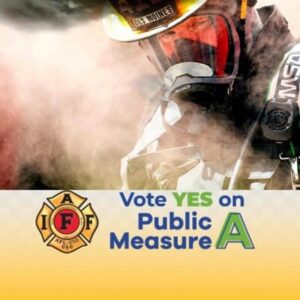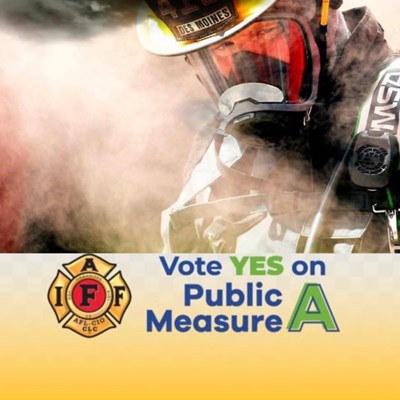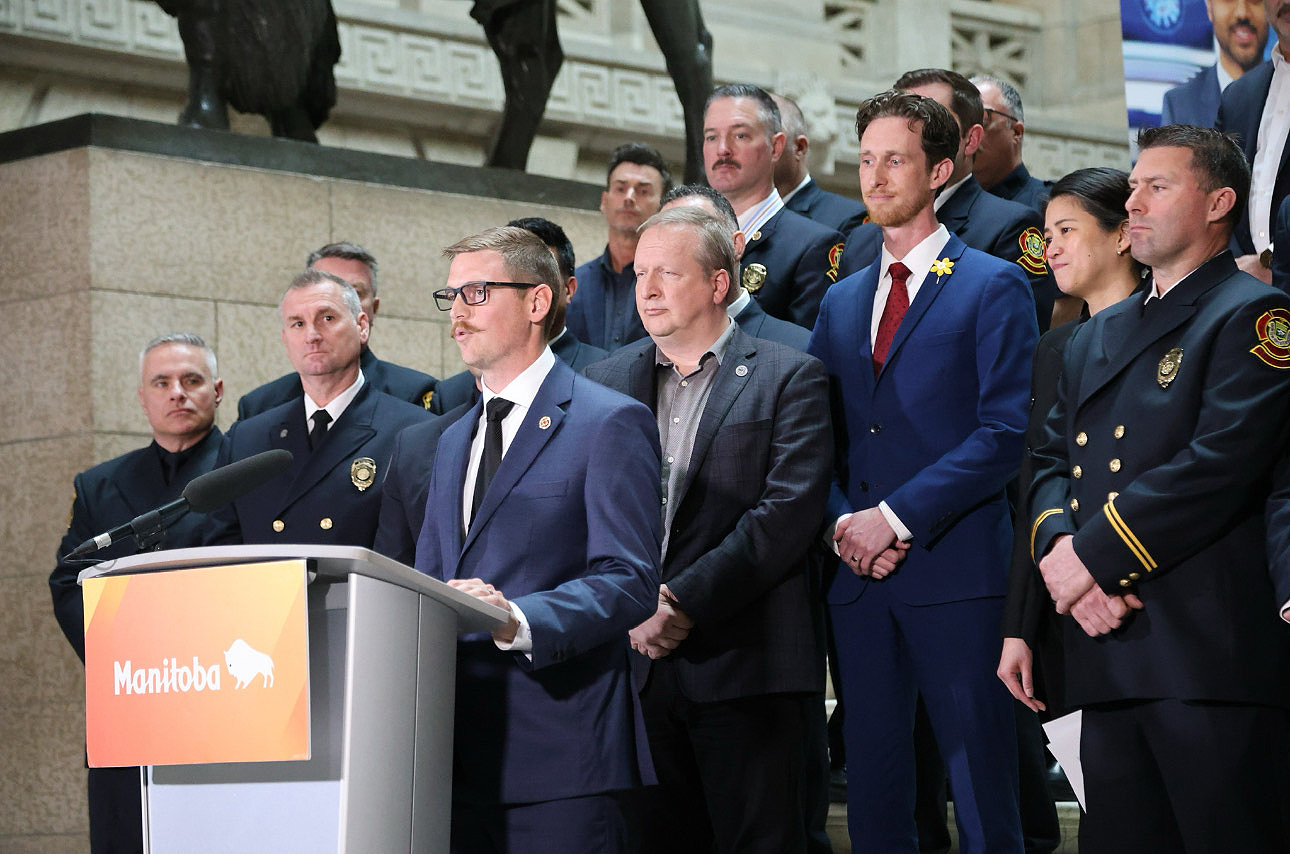
“Local 4 members should be proud of their hard work to get this important measure over the finish line,” says 2nd District Vice President Mark Woolbright. “On behalf of the IAFF, I congratulate them on a job well done.”
“We are very pleased with the outcome,” says Local 4 President Joe Van Haalen. “We could not have done it without the IAFF and our Neighbors for Growth and Public Safety partners.”
At the end of 2018, the Des Moines City Council voted on a spending plan for the $37 million that the 1-cent tax is expected to generate. Half will be spent on property tax relief and the other half is earmarked for quality-of-life initiatives. Under the quality-of-life initiatives, the tax will fund the salaries of the 13 Des Moines Local 4 fire fighters hired thanks to a Staffing for Adequate Fire and Emergency Response (SAFER) grant (now expired), the construction of a new fire station and the hiring of 10 additional fire fighters needed to staff the new station.
But the measure first had to be approved by voters.
“As soon as we knew it was going on the ballot, we reached out to the other Neighbors for Growth and Public Safety Coalition members and immediately became part of the process,” says Van Haalen. “From the beginning, we were determined to ensure this measure succeeded.”
With assistance from the IAFF, Local 4 launched a social media campaign to deliver the message to voters using video, graphics and targeted messaging. Additionally, Local 4 members reached out to other members, family and friends living in Des Moines to get out the vote while encouraging absentee voters to send in ballots. The strategies worked.
A similar measure failed last year because it did not get the support of the cities contiguously bordering Des Moines as required by state rule. But, the Iowa legislature voted in May to eliminate that rule, removing a major obstacle for passage.



